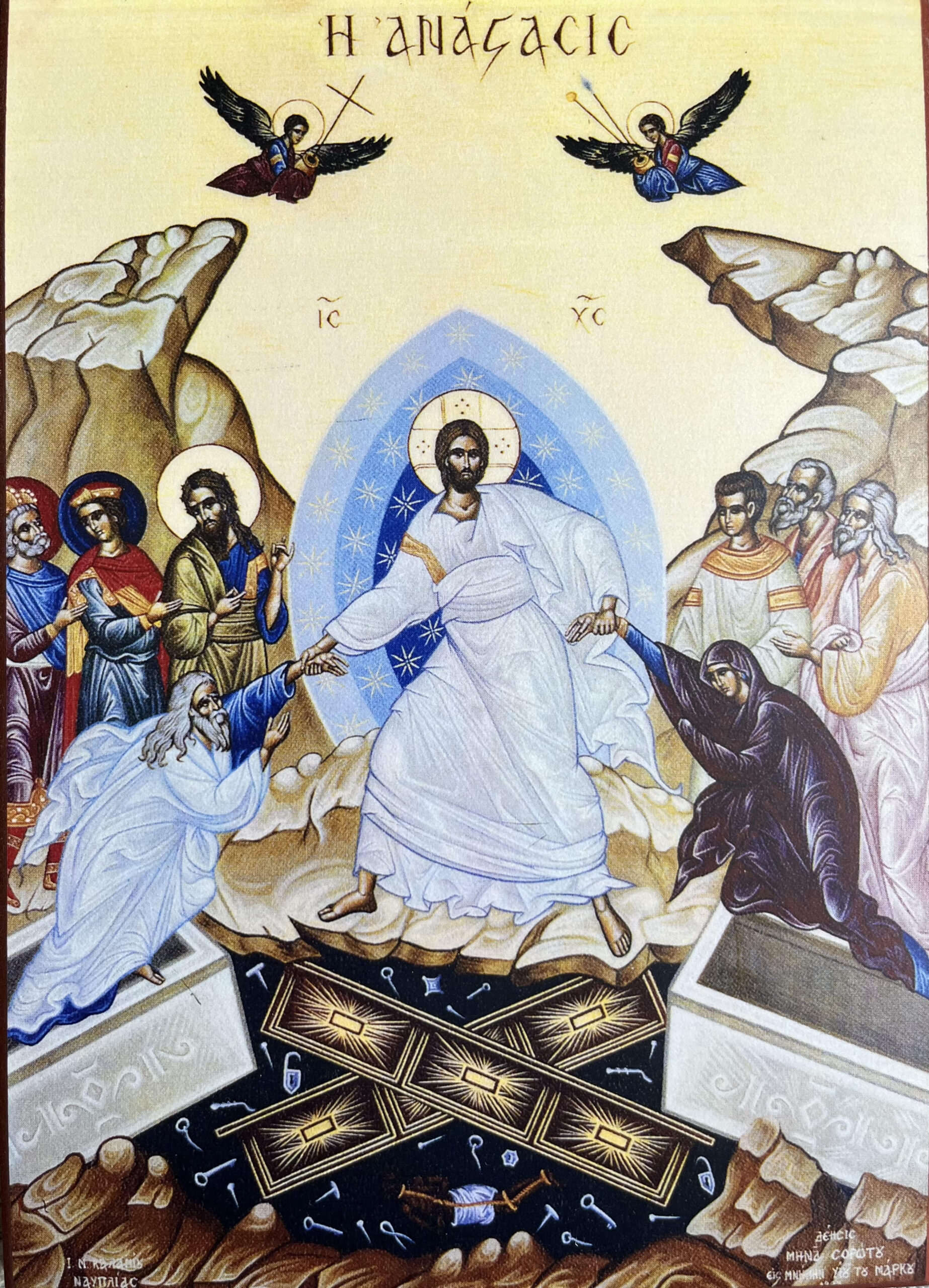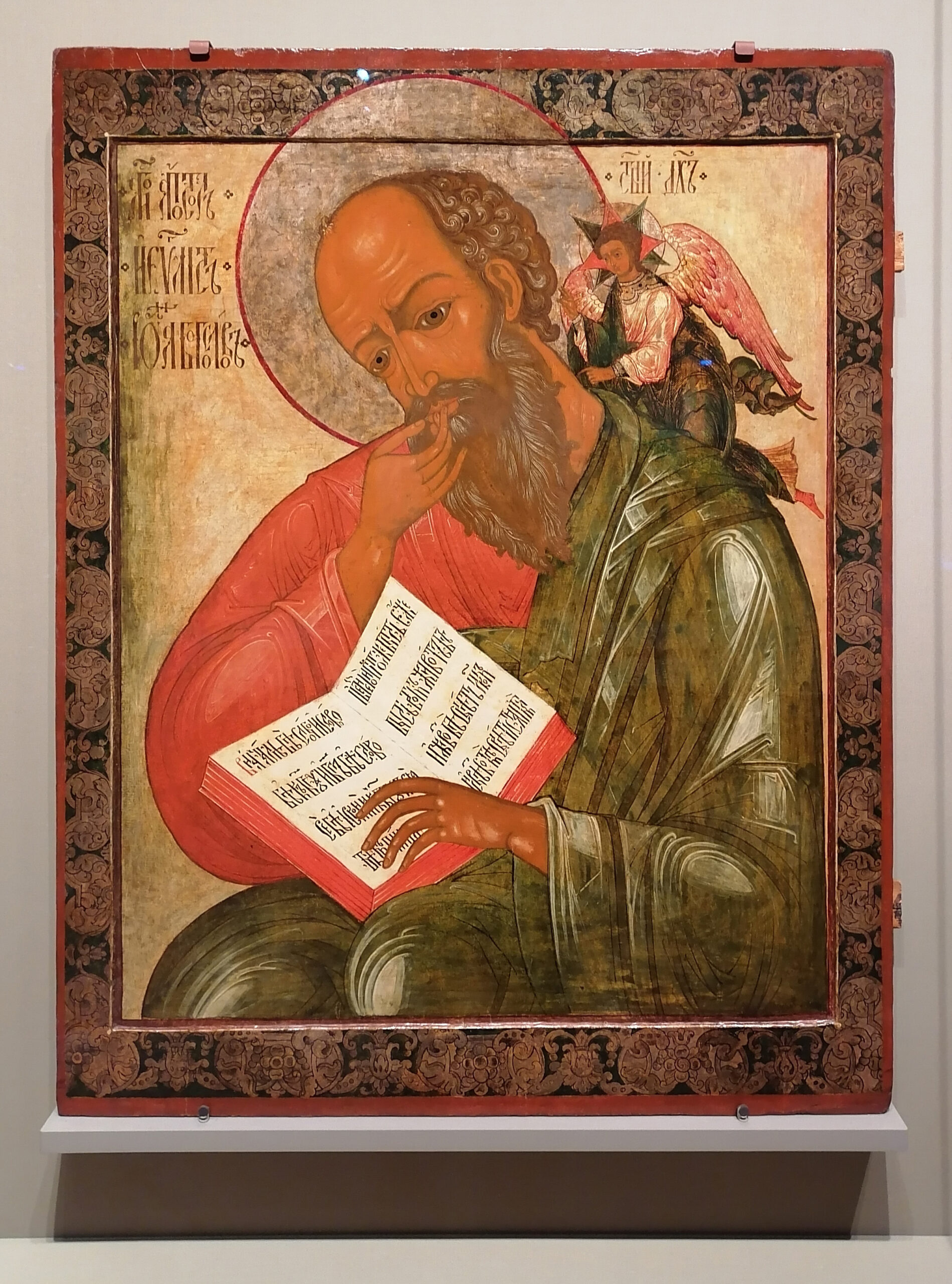Guide me in the paths of salvation, O Theotokos, for I have befouled my soul with shameful sins and I heedlessly squandered all my life’s resources. By your intercession deliver me from every uncleanness.
~Idiomelon from Sunday Orthros, Triodion (Trans. by Fr. Seraphim Dedes)
—
The Lord said this parable: “There was a man who had two sons; and the younger of them said to his father, ‘Father, give me the share of property that falls to me.’ And he divided his living between them. Not many days later, the younger son gathered all he had and took his journey into a far country, and there he squandered his property in loose living. And when he had spent everything, a great famine arose in that country, and he began to be in want. So he went and joined himself to one of the citizens of that country, who sent him into his fields to feed swine. And he would gladly have fed on the pods that the swine ate; and no one gave him anything. But when he came to himself he said, ‘How many of my father’s hired servants have bread enough and to spare, but I perish here with hunger! I will arise and go to my father, and I will say to him, ‘Father, I have sinned against heaven and before you; I am no longer worthy to be called your son; treat me as one of your hired servants.’”
Luke 15: 11-19
The story of the Prodigal Son is one of the most well-known stories of the New Testament. When the younger son went to his father and asked for his share of the inheritance, he was basically saying to his father “You are dead to me, thus give me what will be mine when you are dead.” The father then gave half of everything he had to his son. The son took half of everything his father had, and went to a far country and in short order squandered all of it. He wasted everything. He was so hungry that he was eating the food that the pigs were eating, and no one gave him anything.
The key moment in the story was the moment when the son came to himself. He realized that he was in dire straits. He realized that he was the cause of his predicament. And he realized that even his father’s servants lived better than he was living. The younger son decided to throw himself at the mercy of his father. He asked to be treated as a hired servant, rather than as a son. There must still have been some love for and some trust in the father for the son to go back to him, knowing that he wasted half of his father’s possessions.
The son didn’t go back to the father with any hope of being more than a servant. He went with humility and contrition, not hoping for restoration or even forgiveness but for mercy and compassion, just the basics—food and shelter. He knew also that if he didn’t do something, he was going to perish from hunger and become sad from loneliness. Despite the fact that he had squandered everything, he knew his only way forward was to go back to the father.
When he got near his father’s house, his father saw him from a long distance away and he ran to his son and embraced him. This is critically important. He didn’t wait for the son to come groveling to him. He rushed to him. And he didn’t demand an explanation, instead he embraced his son. When the son asked the father to be considered as a servant, the father would have none of it. He asked for the finest clothes to be brought, shoes for the son’s feet and a ring for his finger. He asked that the fatted calf be killed and for a celebration to happen, because the son had come back.
This is what happens when we come back to the Father. God rushes to embrace us. He doesn’t chastise us for our absence or our iniquity but celebrates our return. This is what we should keep in mind as we mark the time of Lent. This period should not be a period of shame and sorrow, but a joyful journey back to the Father. The son remembered his father’s house, even in the midst of his pain. He remembered that there was enough provision there for everyone, even the servants. In the same way, we should think back on better days, days when we were closer to God, days when life was more simple. And if we haven’t discovered God yet, we should allow ourselves to imagine what the safety and security of that Father’s embrace was in this parable and how God holds that embrace ready for us to share in it. Rather than have sorrow over what might have been or what never was, we should have hope for what can be. This is what the Lenten journey is all about. Not sorrow over what isn’t or wasn’t, but a hopeful thought of what can be and a joyful and purposeful journey to a loving Father who longs for our return.
The hymn of this reflection is the second of three hymns added to the Orthros on the Sundays of the Triodion and Lent. This one is addressed to the Theotokos. It acknowledges how we are like the Prodigal Son, befouling our souls with shameful sins and squandering our resources. (On a side note, regarding the squandering of resources, the most valuable resource that we have is our time, and boy are we squandering it on unnecessary things, most specifically our phones. How often do we look at one article on the phone, and then another and another and quickly lots of time has been wasted? If only we looked at the Bible with the same addictiveness that we have for the phone. If only we used our phone to send texts of encouragement for as much time as we waste looking at unimportant and even dangerous, sinful things on the phone.) In this hymn, we ask for the Theotokos to guide us back on the path to salvation, or perhaps even to guide us there for the very first time.
The Theotokos is prominent in Orthodox theology, in our journey to salvation and in our hymnology. She serves three roles: First is the historical role she played in our salvation, carrying Christ in her womb. Second is the part she played as our role model. She modeled obedience amidst challenge and unspeakable pain. She models humility and modesty. She models what it means to say “yes” to God and to follow His call. Third is the role she plays as our intercessor before the Lord. The relationship between a mother and son is a very special one. She has more intimate knowledge of Christ than anyone who has walked the earth. We ask continually for her intercessions before Him, to pray for us, to guide us and to encourage us as we walk down the path to salvation.
I revolted senselessly out of Your fatherly glory; I have squandered sinfully all of the riches You gave me. Hence to You, using the Prodigal’s word, I cry out, I have sinned before You, merciful loving Father. O receive me in repentance, I pray, and treat me as one of Your hired hands. (Kontakion, Sunday of the Prodigal Son, Trans. by Fr. Seraphim Dedes)
Lent is a time when we, as did the Prodigal Son, “come to ourselves” and evaluate what we’ve been given, what we’ve squandered, and how we can make a return to the Father. We recognize the shame of past failure. But more important, we look towards future hope. We enlist the intercessions of the Virgin Mary (and all the saints) in this journey of repentance.

